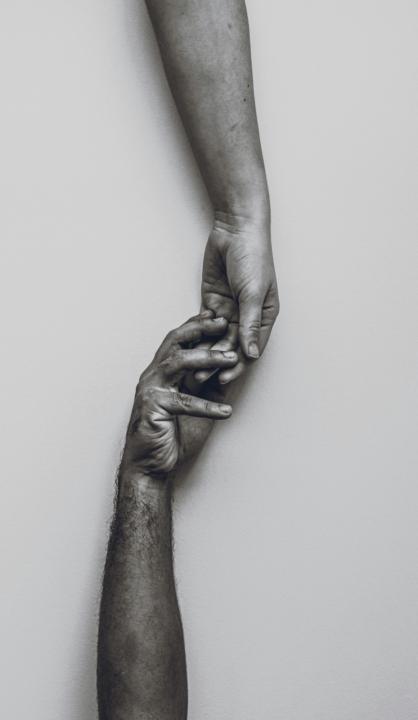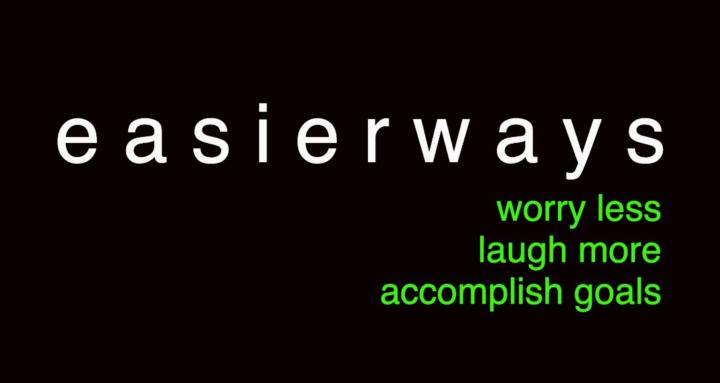Pinned
🟢 START HERE
Easier Ways is here to help a person stay sober, trust their own wisdom, and build a life they want without the need to rely upon traditional recovery methods. That said, there is nothing here that will contradict what is found in any support program. At Easier Ways, we know there’s no single path to sobriety. What works for one person might not work for another, and that’s exactly how it should be. Therefore, we respect whatever helps someone find their footing. That’s why we’ve taken a deep dive into the different approaches out there and created a resource center to help people explore their options and figure out what fits for them. And even though every method has its own language and focus, all of them rest on a few shared foundations: honesty, open-mindedness, a willingness to start… and as you go, humility and commitment. Then there are a few things that don’t always get talked about, but when you step back and take an objective look, especially through the lens of behavioral science, they start to stand out pretty clearly. 🟢 The thing a person trying to change? It’s almost never the real problem. It’s a symptom, a sign that something deeper is asking for attention. 🟢 Relapse isn’t some kind of personal failure. More often than not, it just means the help the person had didn’t reach the real need underneath. 🟢 Every one of us has core psychological needs. The need to feel safe. To experience variety and adventure. To feel appreciated. To love and be loved. To avoid pain and experience joy. And when those needs aren’t met? We’ll do whatever we can; sometimes in ways that help, sometimes in ways that hurt, to try and meet them. that’s when life can start to feel complicated, and overwhelming. Unsafe. 🟢 Every single one of us runs on patterns; patterns of thought, patterns of behavior. One of the deepest habitual patterns is the feeling that the present moment is not good enough. 🟢 Everyone is capable of change. In fact, we do it all the time. We change our minds, our opinions, our plans. But the trickier part isn’t surface-level change. It’s the deeper stuff, the beliefs we’ve been carrying for years about who we are and how life works. A lot of those beliefs made sense at some point. They helped us feel safe, in control, or at least able to make sense of things. But over time, what once protected us can start to hold us back. The challenge is, we tend to see what we expect to see. Thanks to confirmation bias, we accept the evidence that supports our old story and ignore the stuff that doesn’t fit. Real change starts when we’re willing to get curious about those old beliefs, to ask, “Is this actually helping me now?” And if it’s not, to make room for something new through insight. When we see differently, we live differently.

Pinned
Adjusting Notifications From Skool
I'm in several school groups and receive a lot of email notifications. I would prefer to receive fewer notifications than the defaults settings... So if you are like me, and you'd like to adjust how often you receive notifications, watch this short video for instructions.
Pinned
🟣 WELCOME TO EASIER WAYS; PLEASE READ THIS
After hanging out with and learning from a bunch of successful people, one thing stands out: the key to success is to make it fun! Therefore, the primary purpose of Easier Way is to help intelligent people connect with their inner wisdom so that they can stay sober, have fun with good friends, and make a good living doing what they love. And when I talk about staying sober, I mean letting go of any harmful habits that prevent us from enjoying life. You do not need to identify as having an affliction that would qualify you for a 12-step group. This is designed for anyone who wants to improve their life. You are invited to join this community and connect with like-minded individuals seeking a safe space to express themselves. Our online platform is about personal growth, prosperity, and supporting each other. It's the perfect place for free spirits and non-conformists working to overcome challenges, unleash their potential, and live on their own terms. And typically the people who benefit the most from their time in online communities understand that they get back what they put in! So please, share your insights. Encourage and thank others who share what's working for them. We would appreciate that you answer questions if you can and connect people. Whenever possible, please share resources and things that helped you. And lastly, the guidelines of our community... The Dos - Be Kind: Use respectful language to recognize and appreciate different perspectives and cultures. Communicate thoughtfully and purposefully. Remember that everyone's path to healing is different. - Be Inclusive: Let's embrace our differences and appreciate each other's unique life experiences. Diversity enriches our community. - Be Committed: The collective consciousness is Easier. We are better when you are involved and share your thoughts, but please do your best to share your opinions respectfully without giving unwanted advice. The Do Nots - No Harassment or Insults: Do not use sexist, racist, or discriminatory language. Harassment, threats, and the spreading of conspiracy theories are not tolerated. Refrain from sexual advances or violent language. - No Unsolicited Advice: Offer advice only when requested.

Love: It's Bigger Than Our Brains
Today is my birthday. Instead of sharing a list of lessons learned or how grateful I am to be alive, I want to offer something that might ruffle a few feathers. If it does, I’d just ask for one thing: Please give me the gift of grace, maybe even a little tolerance. Try to hear this as something coming from my heart, not my head. Because I want to talk about religion. More specifically, the kind of religion that’s rooted in fear and shame. The version a lot of us were handed growing up. The one that says love is conditional, and God is basically a cosmic scorekeeper, watching and waiting for us to screw up. Immature, fear-based religion often starts with shame. It’s rooted in the belief that love is conditional and that God, or whatever higher power we grew up with, is keeping score. The message is something like: “I messed up. I broke the rules. My dad is going to kill me." That old script tells us we must earn our place and hide our humanity. And that fear? It doesn’t just keep us from God. It keeps us from ourselves. We start to believe that our mistakes define us. That we’re only lovable if we don’t screw up. If we’re unable to meet some standard of excellence, we’re unworthy. But a spirituality anchored in grace, in the Gospel of forgiveness, says something entirely different. It says: “I messed up. I need to call my dad.” That version doesn’t ignore the mistake—it just doesn’t turn the error into a reason to run and hide. It’s relational, not transactional. It’s about trust. Knowing there’s a love that isn’t going anywhere, even when we fall flat on our faces. And that shift? It changes everything. Instead of spiraling into shame, we reach out for connection. Instead of punishment, we open the door to grace. Instead of fear, we move toward love. Because we will mess up. We’ll say the wrong thing, hurt people, and make choices we wish we hadn’t. But the question isn’t “Will we fail?” It’s, “What happens next?” And if what happens next is calling our spiritual ‘dad’—our higher power, our inner knowing, our Source—not because we’re trying to avoid punishment, but because we trust there’s still love on the other end of the line… well, that’s what transforms us.
1
0

Just a Heads-Up; We do have a blog on Substack
I realized something today, the Easier Ways Blog has quietly grown to 349 posts. That’s 349 reflections, stories, and reminders about what it means to live with more peace, purpose, and prosperity. I never set out to write that much. I just wanted to explore how recovery, spirituality, and everyday life come together and somehow, post by post, it’s become a living record of that journey. If you ever need a reminder that you don’t have to fix yourself, just remember who you already are, there’s something waiting for you there. CLICK HERE TO CHECK IT OUT.
0
0

1-30 of 161
powered by

skool.com/community-builders-elite-8701
Drinking way too much? Overthinking and feeling miserable? The answer isn’t out there, it’s in you. A quiet wisdom that’s been with you all along.
Suggested communities
Powered by

